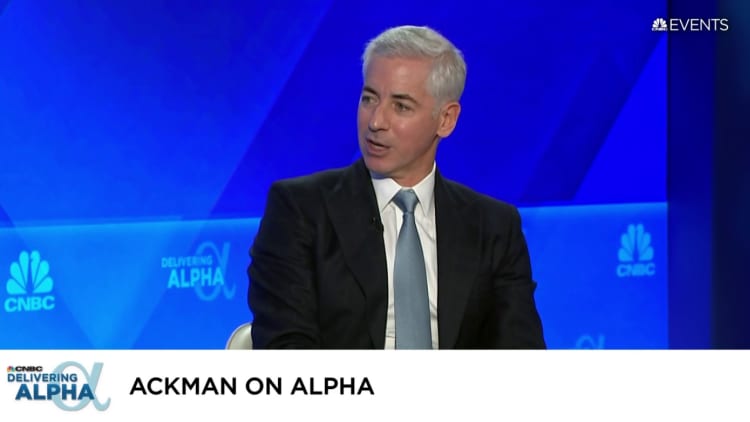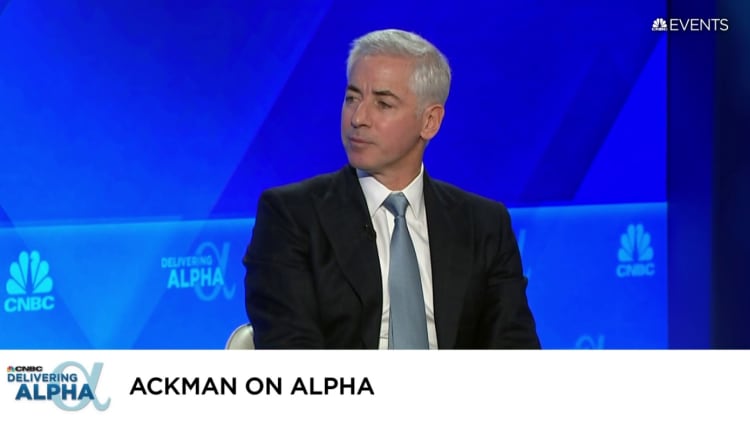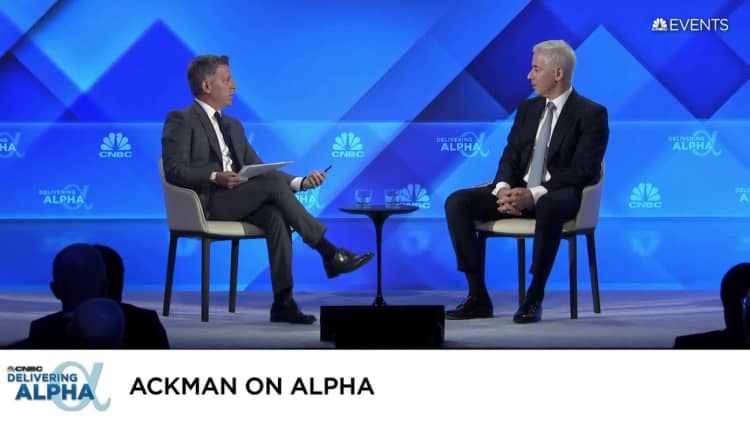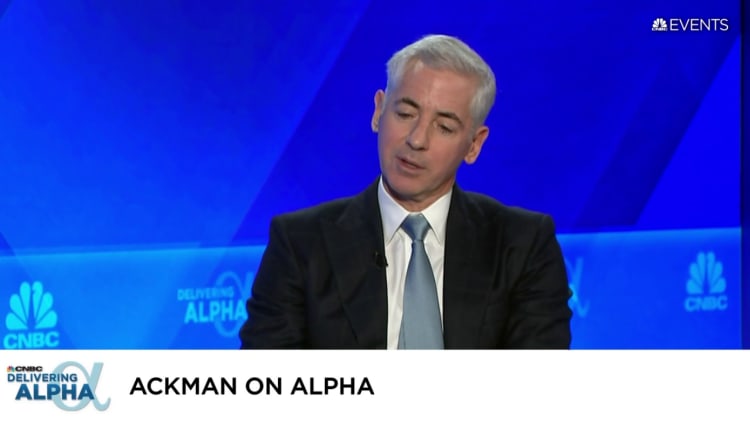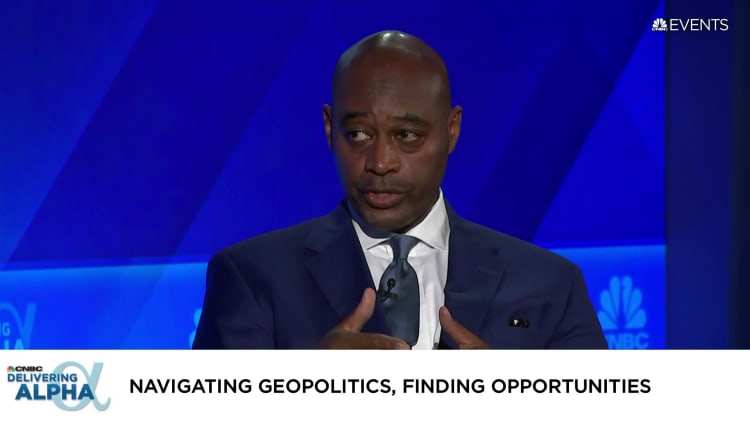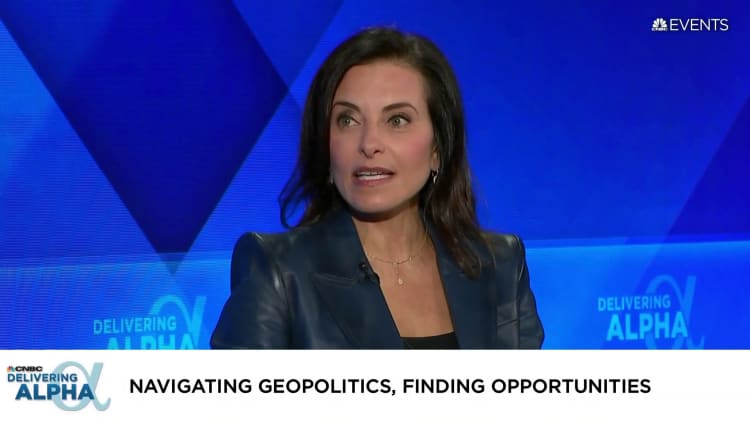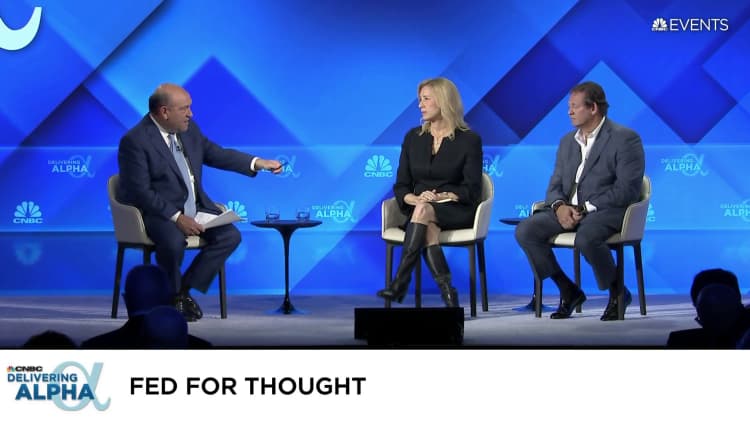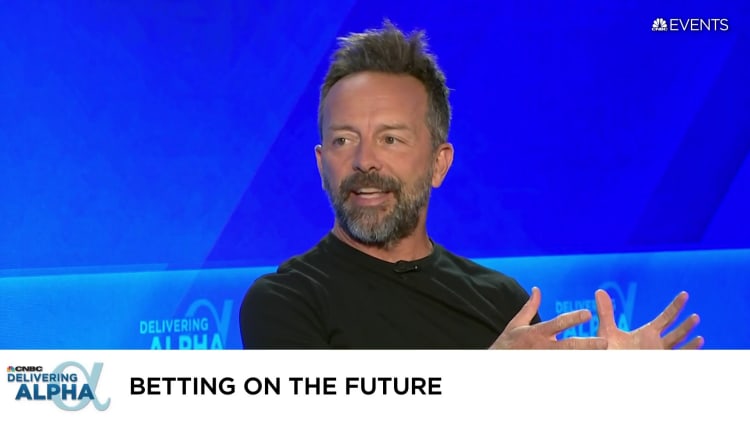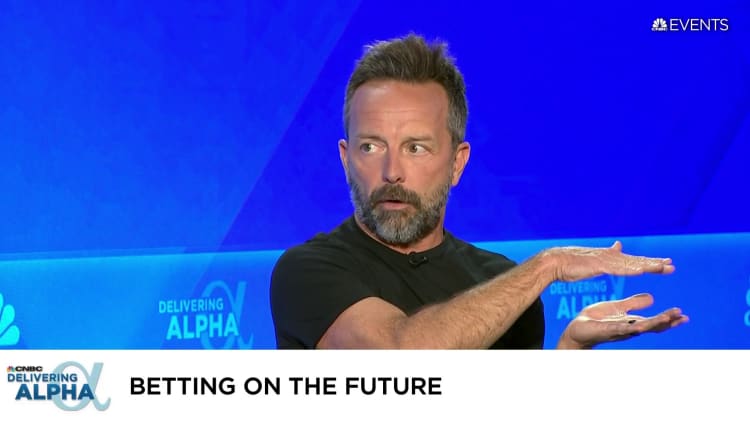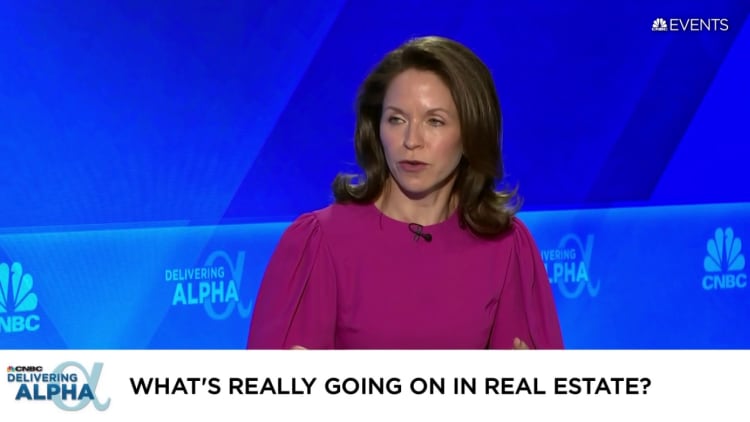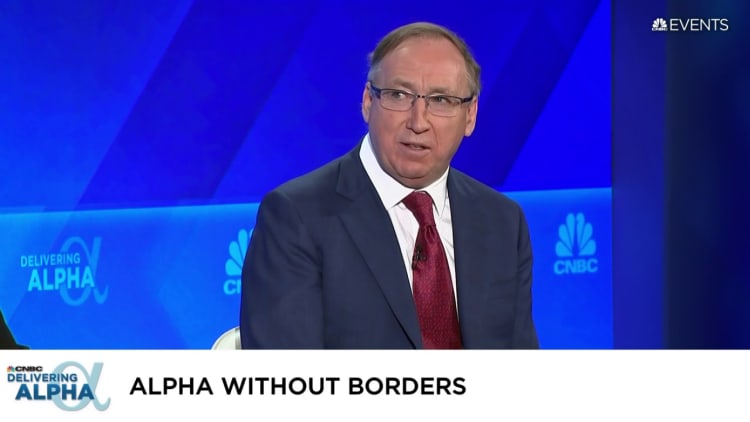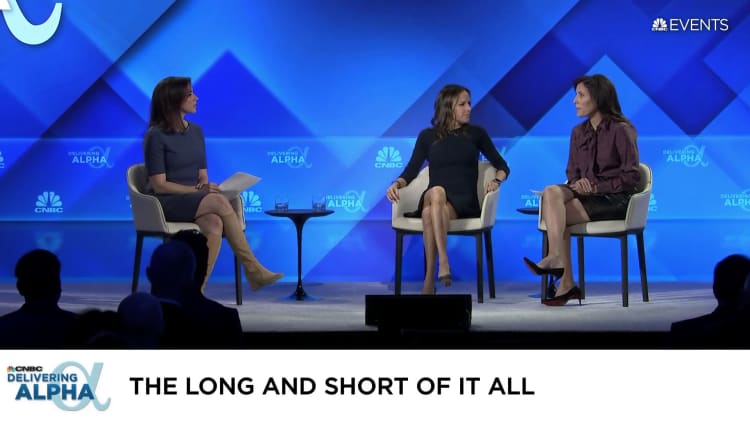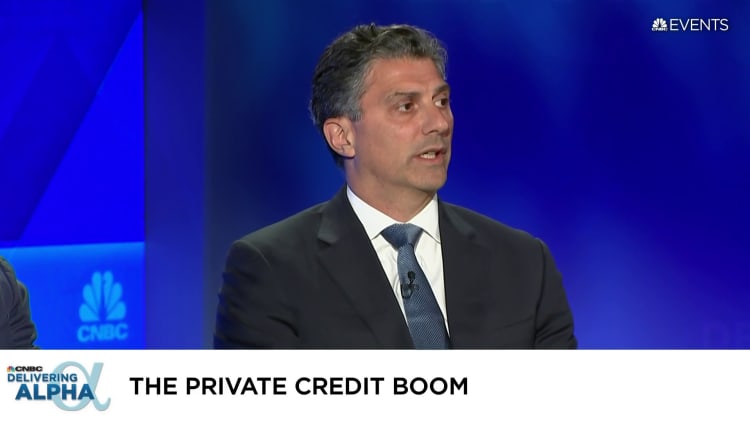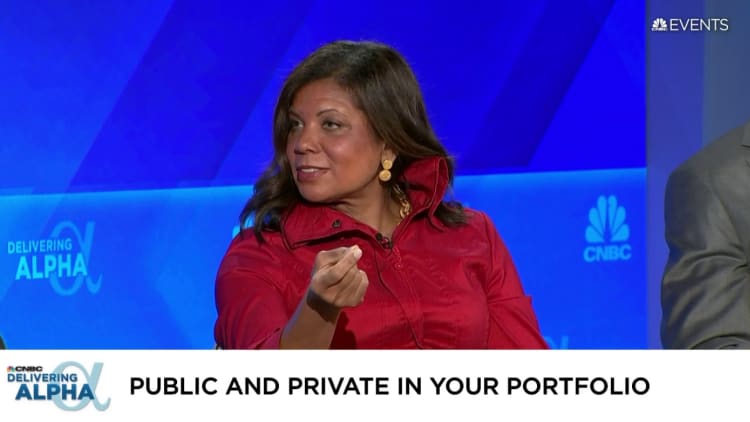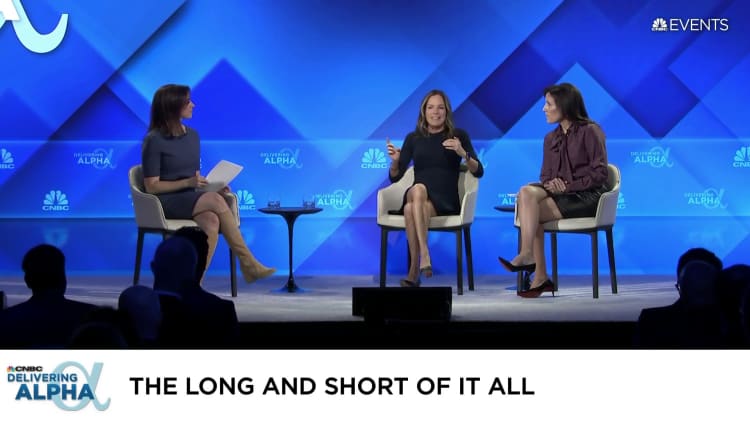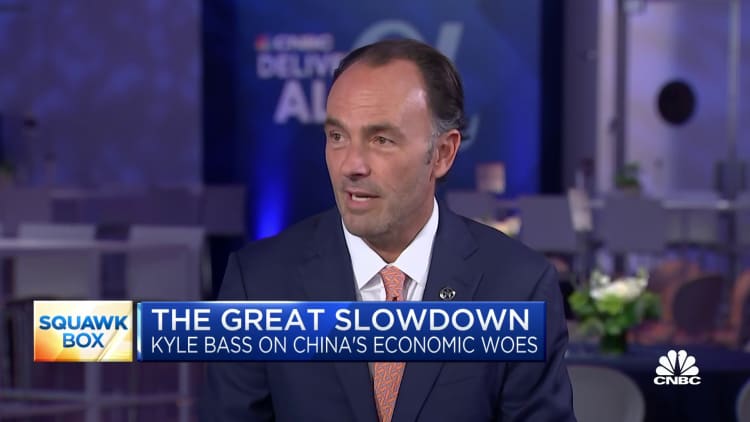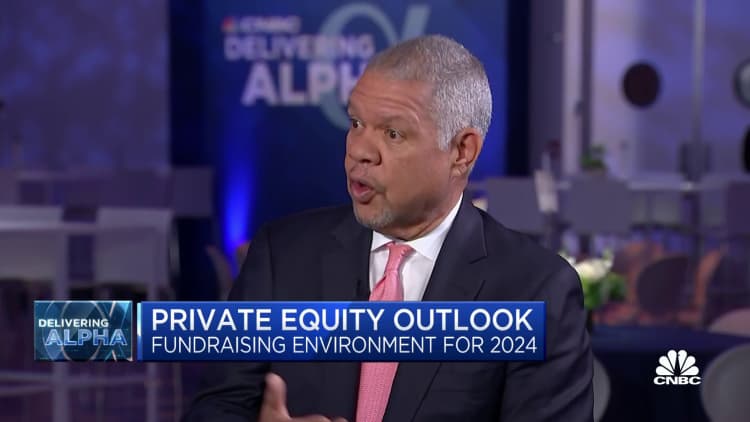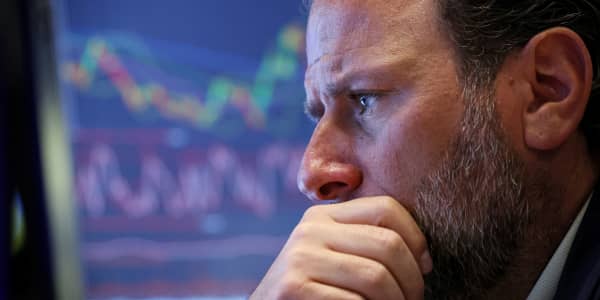It's a key moment for investors with the Fed near the end of its hiking cycle but interest rates likely to remain higher for longer as the central bank continues its fight against inflation. Consumers are getting stretched, China's economy is under stress, stocks have been shaky and bond yields are soaring.
The outlook from top investors at Delivering Alpha reflected these risks from start to finish, with Wall Street pros, pension giants and hedge fund managers saying to expect more cracks in the economy and in the stock market. But opportunities are widespread as well, from private credit to energy bets, AI, overseas stocks and resilient real estate niches.
The annual investor summit culminated with an interview of hedge fund billionaire Bill Ackman.



